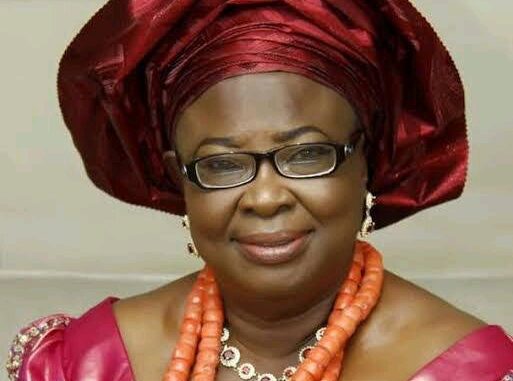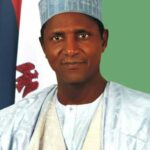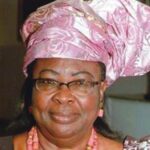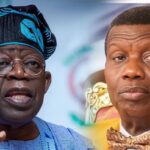
Professor Uche Azikiwe did not hesitate when the conversation turned to one of the most disputed chapters of Nigeria’s civil war. Sitting in the Arise News Prime Time studio, she reflected on her late husband’s defection from Biafra back to the Nigerian side – an action still debated across generations. To her, the choice was not merely political; it was existential. “Without that I don’t think there would have been any Igbo left. They would have wiped all of us out,” she said, holding firmly to the belief that Nnamdi Azikiwe’s intervention prevented the Igbo from facing total destruction.
She explained that he had assessed the situation with the eyes of someone who understood both the harsh realities on the ground and the long-term consequences of refusing to yield. In her telling, he recognised that the war had reached a point where bravado would only deepen the suffering of civilians already trapped by hunger, instability and, in many places, hopelessness. His decision, she emphasized, emerged from maturity and a deep instinct for preservation rather than surrender.
And yet, the former First Lady acknowledged that this same act – seen by many historians as a strategic pivot – remains a source of bitterness in some corners of the Southeast. A “minority,” she noted, still accuse him of betraying regional loyalty, but she argued that such interpretations miss his lifelong devotion to a unified Nigeria. In her view, it was precisely his broad sense of national responsibility that placed him at odds with those who wanted the war to continue at any cost.
Azikiwe’s widow described her husband as a man who rarely insisted on having things his own way. He listened, weighed arguments, and chose the path he felt would spare the greatest number of people from turmoil. That approach, she suggested, was not weakness but discipline – an understanding that leadership sometimes demands stepping back when ego says push forward. It was the same instinct, she recalled, that had driven him throughout his political life, from the struggle for independence to his insistence on building alliances across ethnic and regional lines.
From that perspective, she believes modern Nigeria still has much to learn. She pointed to the word that dominated the commemorative lecture held in his honour only a day earlier: compromise. If more Nigerians, she suggested, were willing to temper personal ambitions for the collective good, the country might navigate its challenges with less acrimony. She stressed that insisting on absolute victory in a plural society almost always ends in collective loss.
Her prescription for today’s Nigeria included a renewed consideration of regional governance, a restructuring she feels could help the federation manage its diversity more effectively. She didn’t speculate on what exactly her husband would make of the present political climate, but she was certain he would have encouraged dialogue over confrontation and national cohesion over zero-sum competition.
As for how the country remembers him, she expressed satisfaction with existing honours – the international airport, the university, and other memorials that bear his name. Still, she hinted that more could be done, not out of vanity but as recognition of the sacrifices he made for a united country. His refusal to insist on leadership positions during the independence era, she said, was one such sacrifice; had he dug in his heels, Nigeria’s transition might well have fractured before it even began.
In the end, Professor Uche Azikiwe returned to the theme that defined her husband’s life: that peace and progress require constant negotiation, sometimes even the surrender of what one believes to be a personal right. It is a lesson she believes Nigeria continues to overlook. But, as she reminded viewers, it is also a legacy worth holding onto – one that guided Nnamdi Azikiwe through the most turbulent moments of national history and, in her view, helped preserve an entire people.
If you love political news or like to get more news happening around the globe, use the button below to get more verified news happening around Nigeria and the world today.








Leave a Reply